Japan and Africa: Closer Than You Think / Hosting TICAD9
2025.08.19
In August, the Ninth Tokyo International Conference on African Development "TICAD 9," focusing on African development, will be held in Japan for the first time in six years. Although Japan and Africa may seem distant at first glance, they share many connections, particularly through imports of food and other materials, and have some important things in common. Ahead of TICAD 9, Cameroonian-born and Japan-raised manga artist Hoshino Rene and two staff members from JICA's Africa Department discussed the relationship between Africa and Japan.
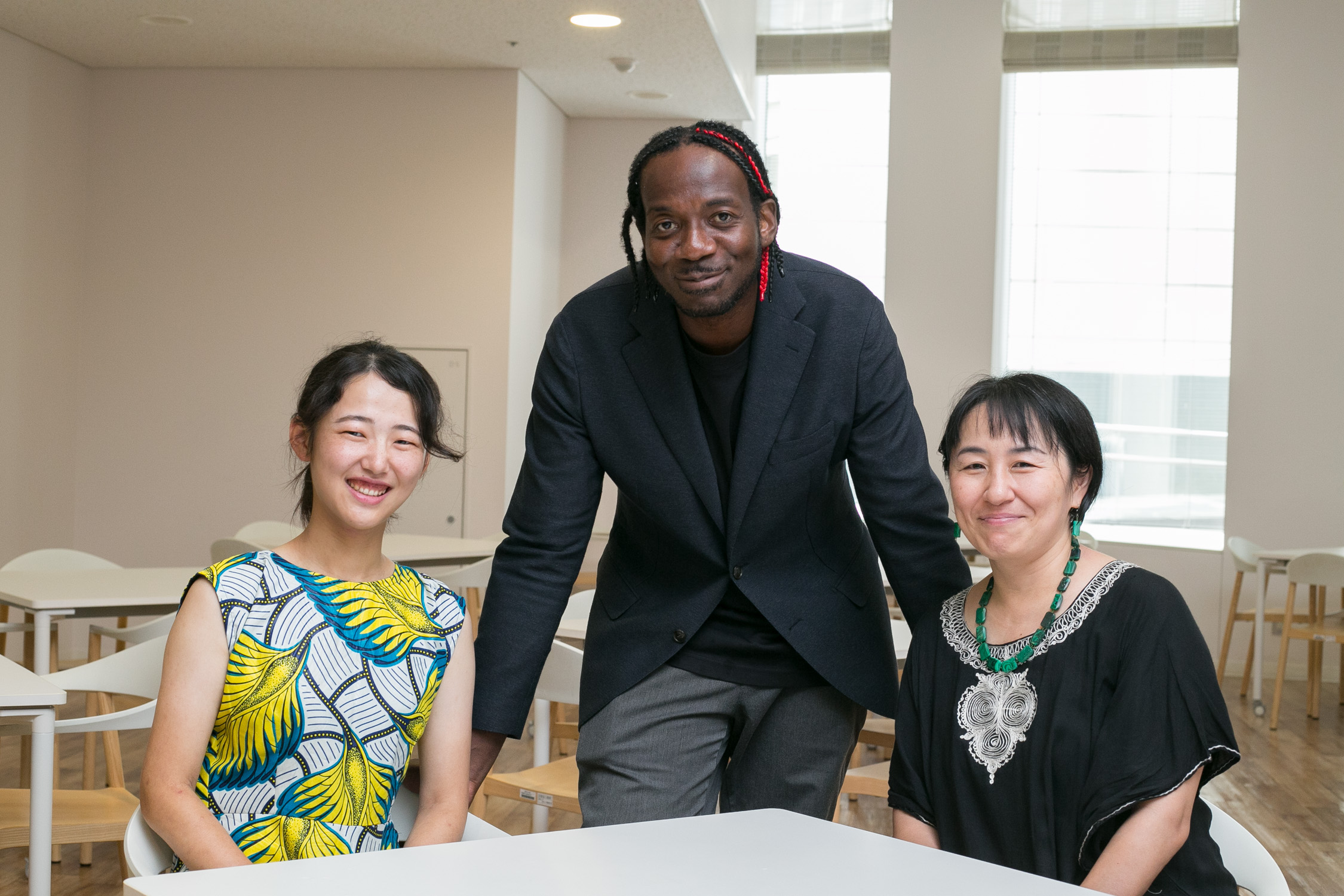
Hoshino Rene, center, and JICA Africa Department members Niki Hozumi, left and Kushida Mami
Hoshino Rene: One of the themes of my work is to help people in Japan understand the true face of Africa. Because I sense that many people still view Africa through outdated stereotypes, often imagining it as an undeveloped place.
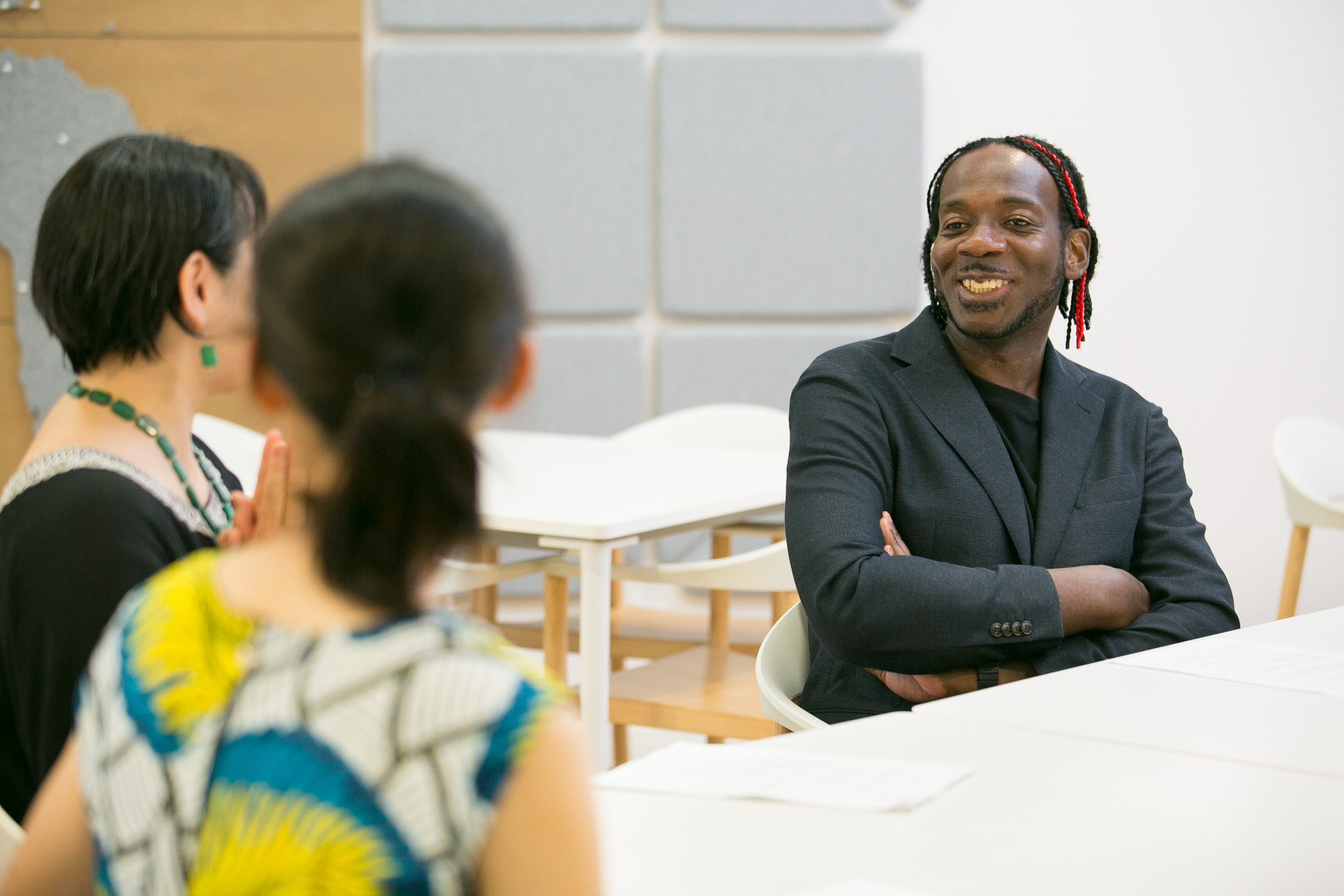
Hoshino Rene
Born in Cameroon in 1984, Hoshino Rene moved to Himeji, Hyogo Prefecture, at the age of four after his Cameroonian mother married a Japanese man. His published works include "Manga: The Result of an African Boy Growing Up in Japan" (including a family edition), and "Manga: A Collection of Proverbs from Around the World Discovered by an African Boy."
Kushida Mami, Senior Deputy Director, Planning and TICAD Process Division, JICA Africa Department: When we talk about Africa, it's important to remember that it's not a single country. The African continent is home to 54 countries and approximately 1.4 billion people, comparable to China or India. Since the 2000s, Africa has experienced high economic growth, with an annual rate of around 5%.
Niki Hozumi, Africa Division 4, JICA Africa Department: Many Japanese people tend to think of Africa as not yet developed, but I hope they learn that it also has large urban centers with tall buildings and modern infrastructure.
Kushida: The African continent is incredibly diverse, with wide variations in people's temperaments and cultures. Madagascar, an island nation in the African region surrounded by the Indian Ocean, is a French-speaking country with cultural influences that are closer to Asia. I found the people there to be reserved and modest in demeanor. In contrast, people in French-speaking West Africa tend to have more open and cheerful personalities.
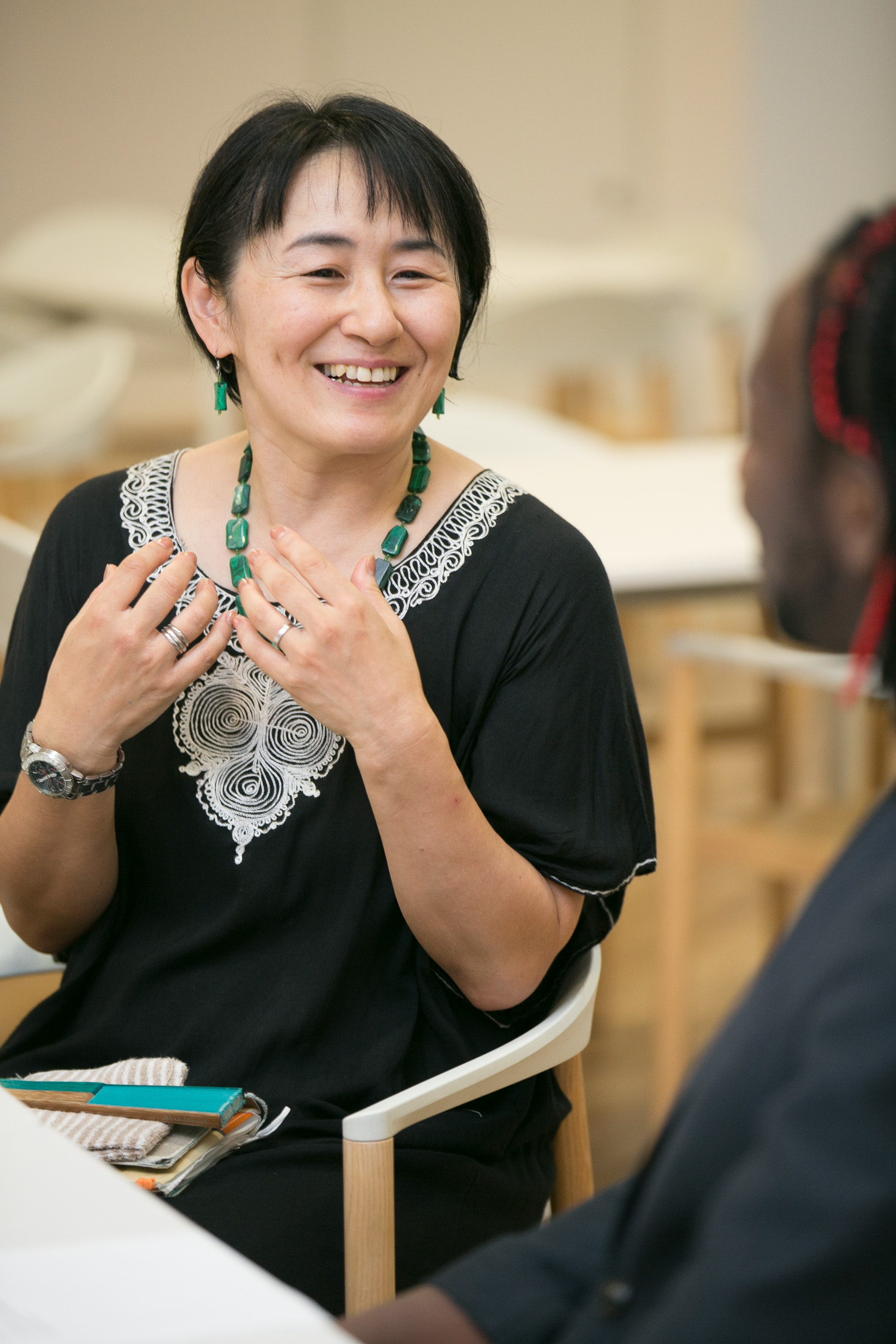
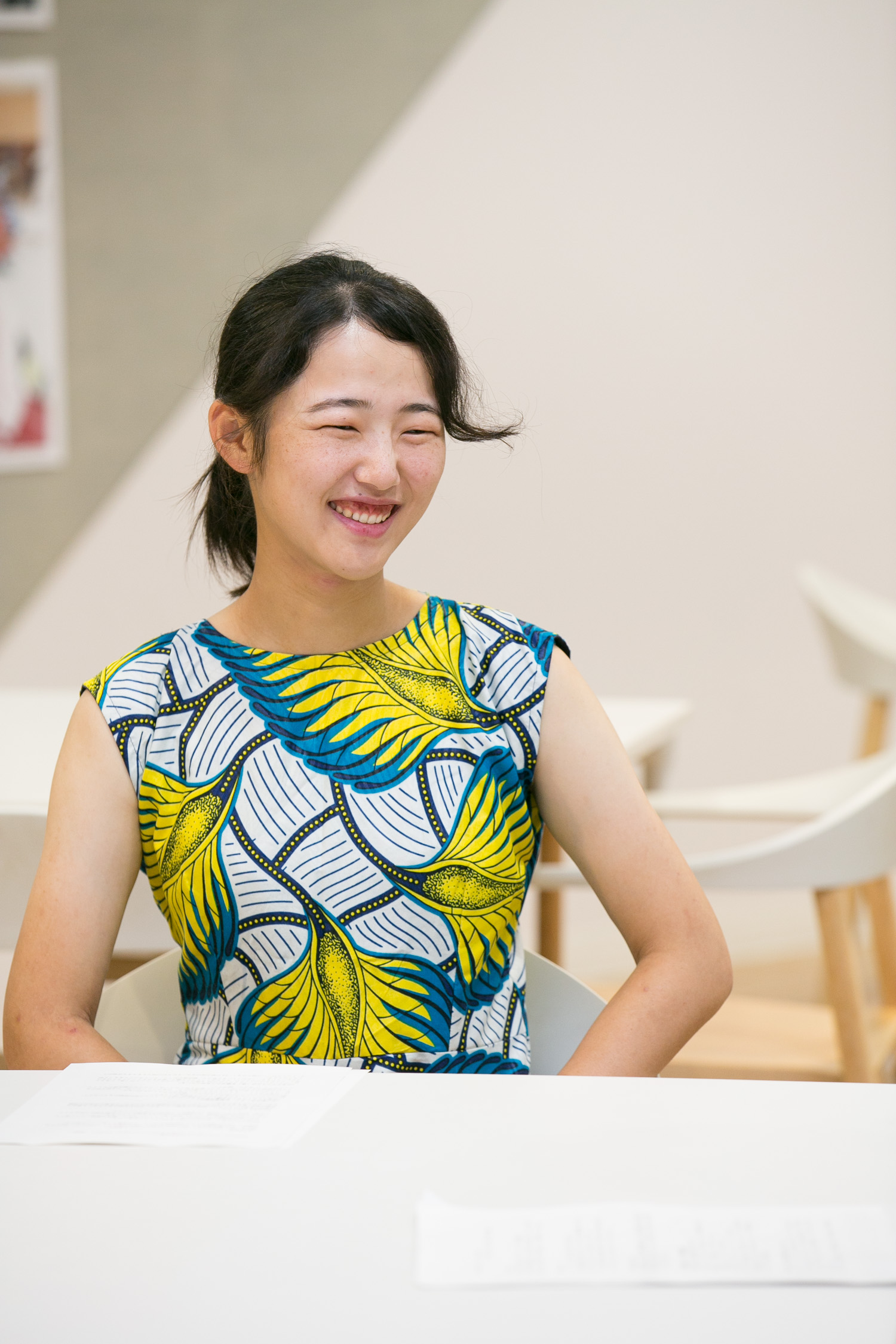
【left】Kushida Mami, Senior Deputy Director, Planning and TICAD Process Division, JICA Africa Department
After leaving the private sector, she stayed in Niger for two years as a Japan Overseas Cooperation Volunteer. Upon returning to Japan, she joined JICA and was posted to Madagascar, where she worked on projects across various African countries. She is currently involved in supporting African cooperation efforts, including the promotion of TICAD 9.
【right】Niki Hozumi, Africa Division 4, JICA Africa Department
She joined JICA in 2024. In the same year, she was posted to Cameroon for three months, where she worked on projects such as promoting agriculture.
Hoshino: It's true that it's difficult for Japanese people to form an image of Africa. I often think about how we can help them understand the true picture. For example, how about making connections through the dining table? Many ingredients in Japan are imported from Africa.
Niki: Exactly! Coffee beans and cacao beans are well-known examples. Less commonly known is that the octopus used in takoyaki is also imported from Africa. In supermarkets, you often see octopus from Mauritania and Morocco.
Kushida: High-quality vanilla often comes from Madagascar as well. Recently, I've noticed that some chocolates are labeled as using Madagascar vanilla.
Hoshino: Talking about food makes distant Africa feel much closer.
Since the 1960s, when many African countries became independent, JICA has been working with Africa to promote developmental self-reliance. Initially focused on poverty alleviation and sanitation, JICA now promotes cooperation that responds to the evolving needs of a dynamically growing continent.
In the economic and social fields, JICA is engaged in a wide range of projects, including agricultural development, industrial human resources development, energy development, entrepreneurship support, strengthening health and medical systems, nutrition, education, and creating quality employment. In particular, the agricultural sector has focused on increasing rice production. "New Rice for Africa : NERICA," which has been promoted through JICA's technical cooperation, has gained attention as a means of supporting Africa's food security.
Japan's longstanding cooperation with Africa has also brought benefits to Japan. Mauritania's octopus is a prime example. Locally, there was originally no custom of eating octopus, but through JICA's technical cooperation and the development of fishing ports, octopus fishing has flourished and the fishery has developed. As a result, affordable and high-quality octopus can now be exported to Japan.
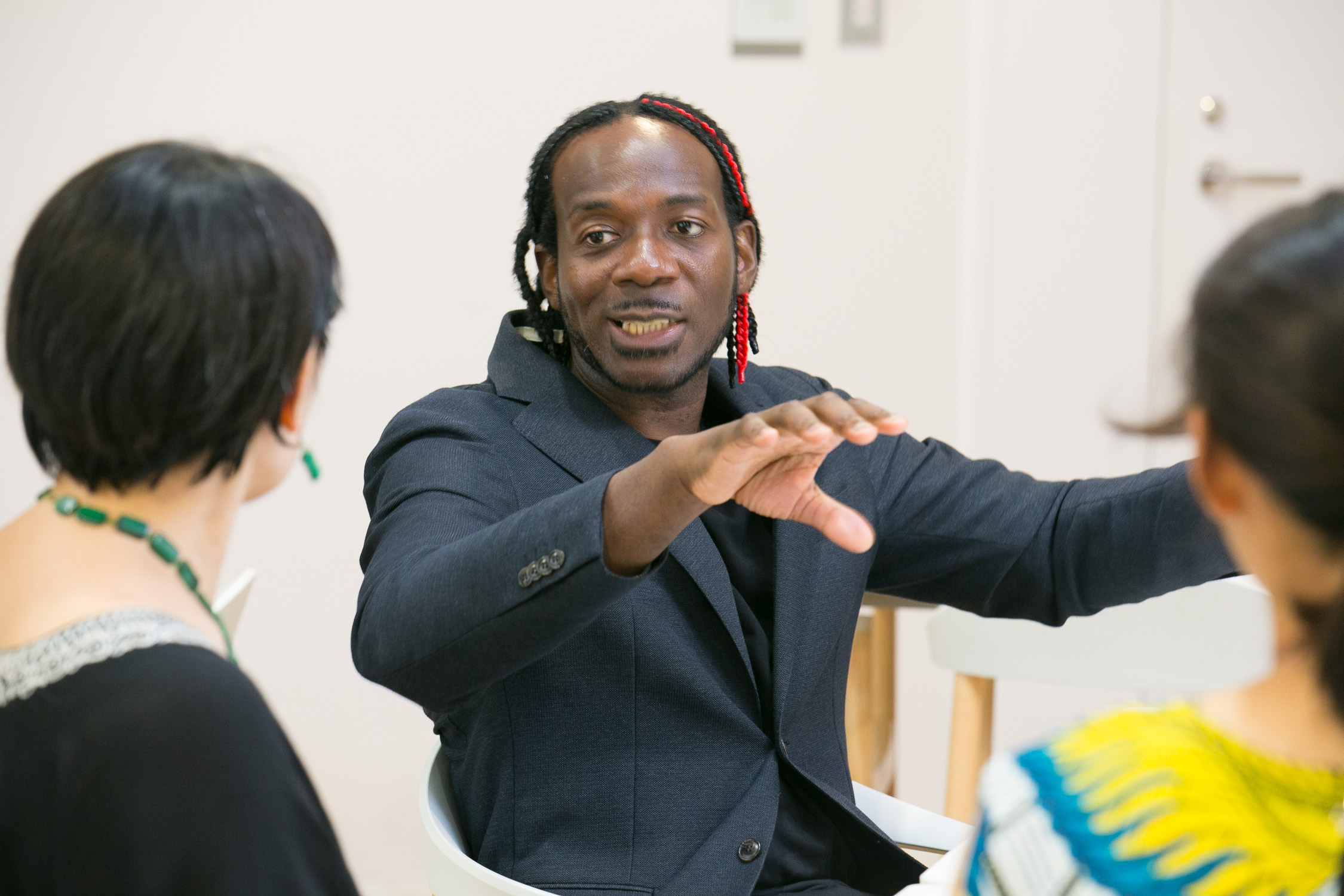
"My favorite Cameroonian dish is poisson braise, which is grilled fish topped with a spicy and tangy green sauce," says Hoshino.
Hoshino: What kind of food did you eat while you were working in Africa?
Niki: Last year, I was posted to Cameroon for three months. It's the country where you were born, right? I became hooked on plantains (cooking bananas) there. When dining at restaurants, you could choose between fried plantains, French fries, or rice as a side dish, and I always opted for plantains.
Hoshino: These days, there are supermarkets in Japan where you can buy plantains. It would be great if plantains became a regular menu item in Japanese restaurants too.
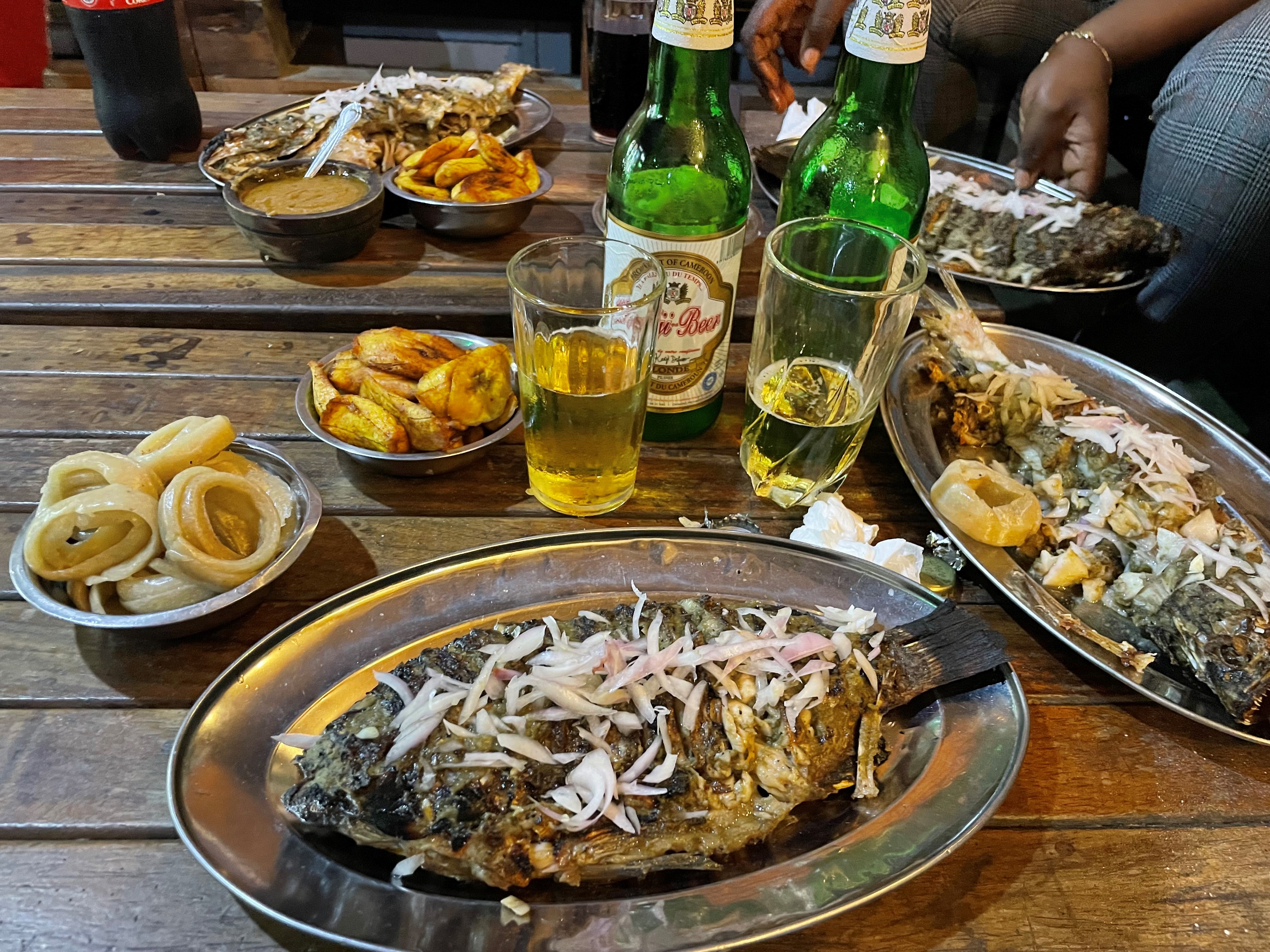
Poisson braise
Kushida: In Niger, where I first stayed, sweet and fried foods were sometimes served in the morning. Initially, I was surprised, but it makes sense in a hot country as it's an easy way to consume energy. As I got used to it, I felt that it was a diet well-suited to the environment.
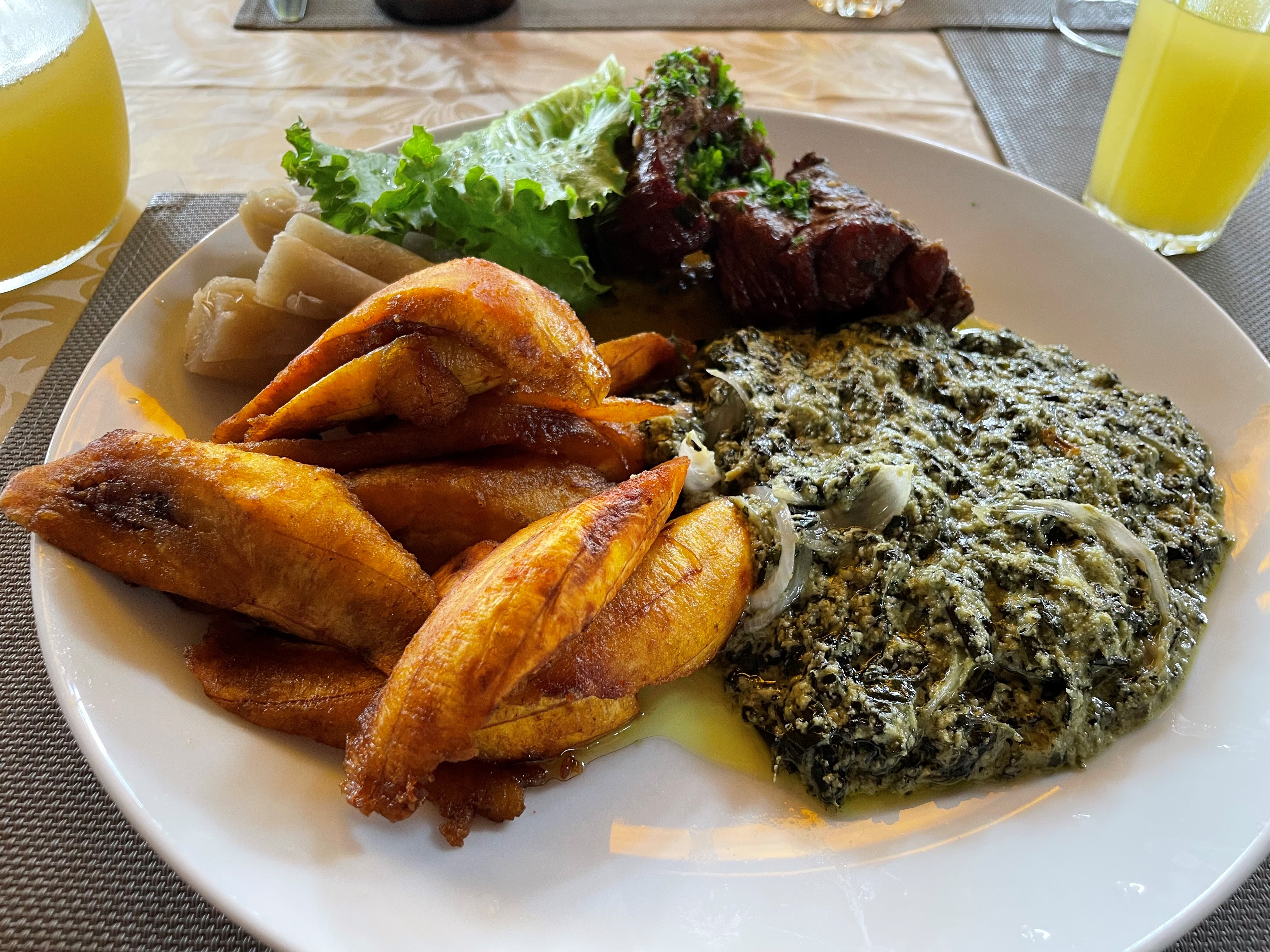
Fried plantains, left and Ndolee, right, a Cameroonian dish
Hoshino: It's a case of "different places, different customs." When I told people in the village in Cameroon where I returned home that "in Japan, we eat raw egg on rice," they were taken aback. They said, "Are you a snake to eat eggs raw?" Since there isn't a culture of eating raw eggs overseas. However, they were putting condensed milk on their rice. Both involve putting something on rice, but the differences were surprising to both sides. When I tried the condensed milk on rice, it was really delicious.
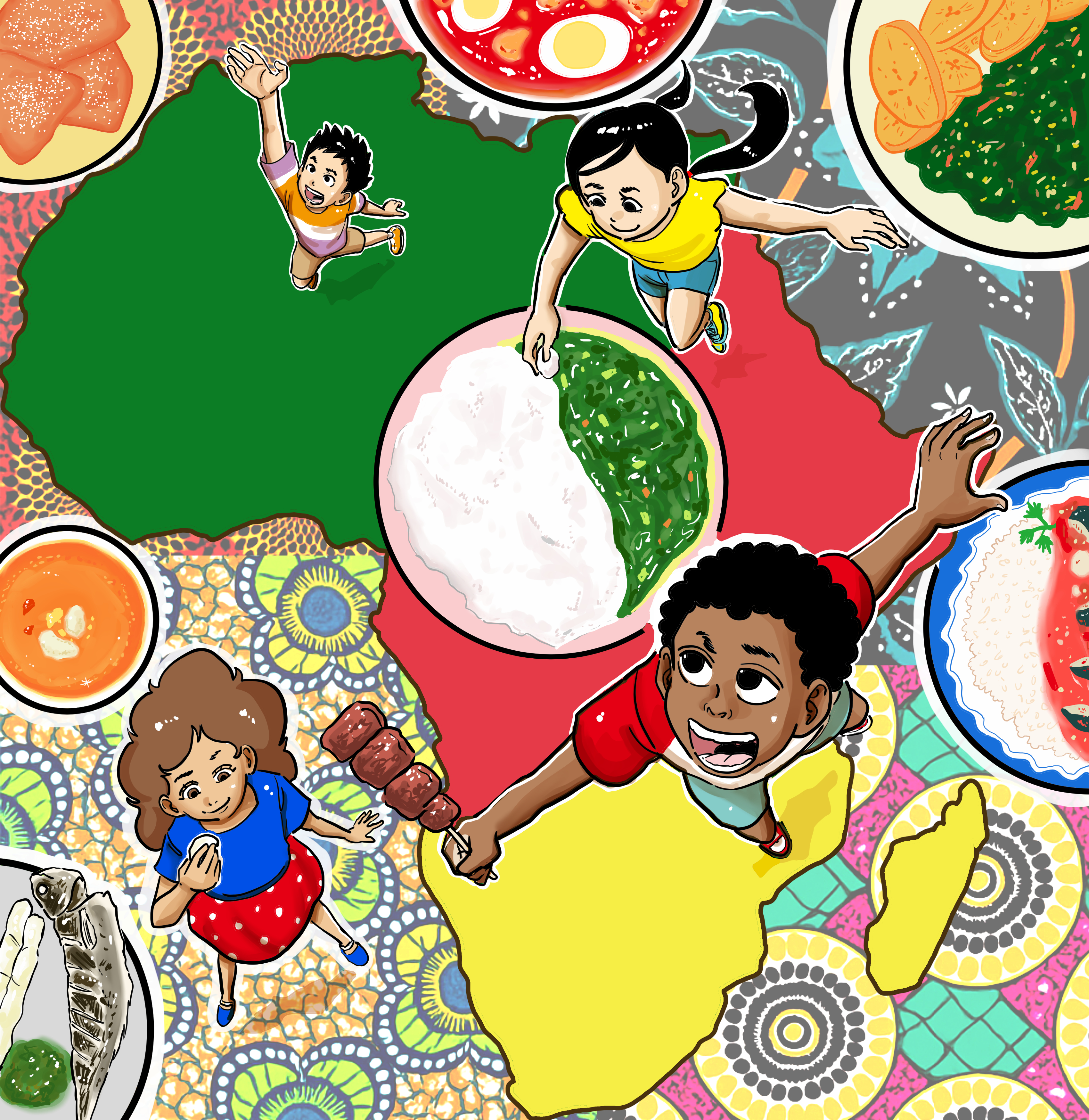
Illustration by Hoshino Rene
Hoshino: Is there anything else that left a strong impression on you while you were there?
Niki: I would say the easygoing nature of the people in Africa. For better or worse, everyone is quite relaxed about time (laughs). Even if a meeting is scheduled for 9 a.m., it never starts at 9. People gather gradually, and once everyone is there, it's like, "Shall we start now?" I found that atmosphere really nice.
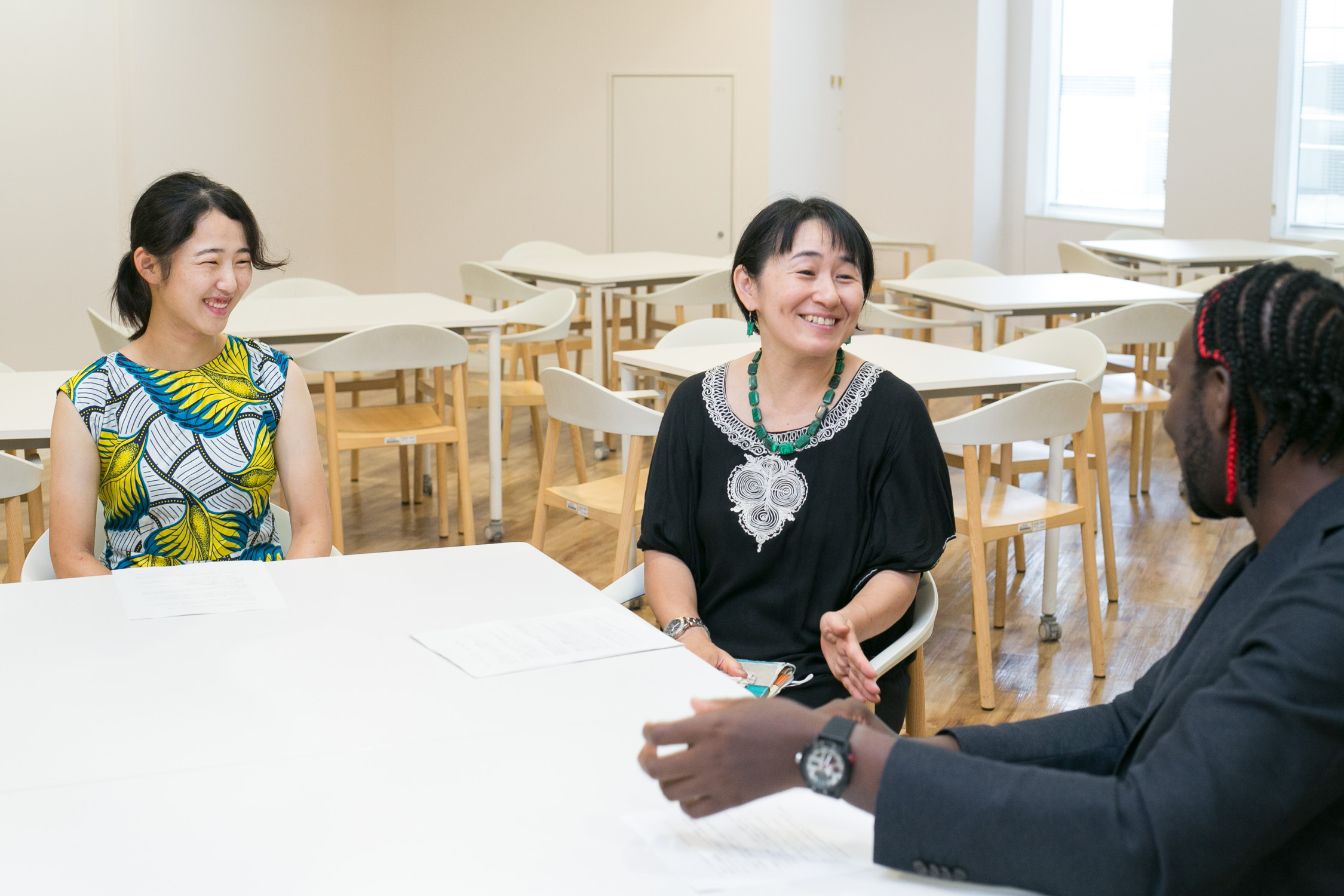
From left, Niki Hozumi, Kushida Mami and Hoshino Rene
Hoshino: My paternal grandfather once visited Cameroon. It was his first overseas trip. He came to Cameroon expecting to experience a "foreign country," but he felt more like he had returned to the Japan of his childhood in the Showa era. He said, "I had a wonderfully nostalgic and pleasant time." It seems that the landscapes and lifestyles he remembered from Japan during the Showa period were present in Cameroon. In some ways, Africa might still hold onto things that Japan has lost, such as rural landscapes and the richness of community life.
Niki: I'm from a rural area, and when I went to Cameroon, it felt like returning to my hometown. There were rice fields, cassava farms, and close-knit communities. While Japan and Africa are far apart, I feel they have things in common.
Hoshino: Cameroonians are incredibly friendly and will talk to anyone. They are full of energy and vitality. When I went to Cameroon with my family during my first-grade winter break, I was overwhelmed by the liveliness of the local children. The most spirited child in Japan would be the standard in Cameroon (laughs). When I returned to Japan, I, who had been quite introverted, became the most spirited boy in school. There's a saying, "When in Rome, do as the Romans do," and when you mingle with Africans, everyone takes on an African-like vibrancy.
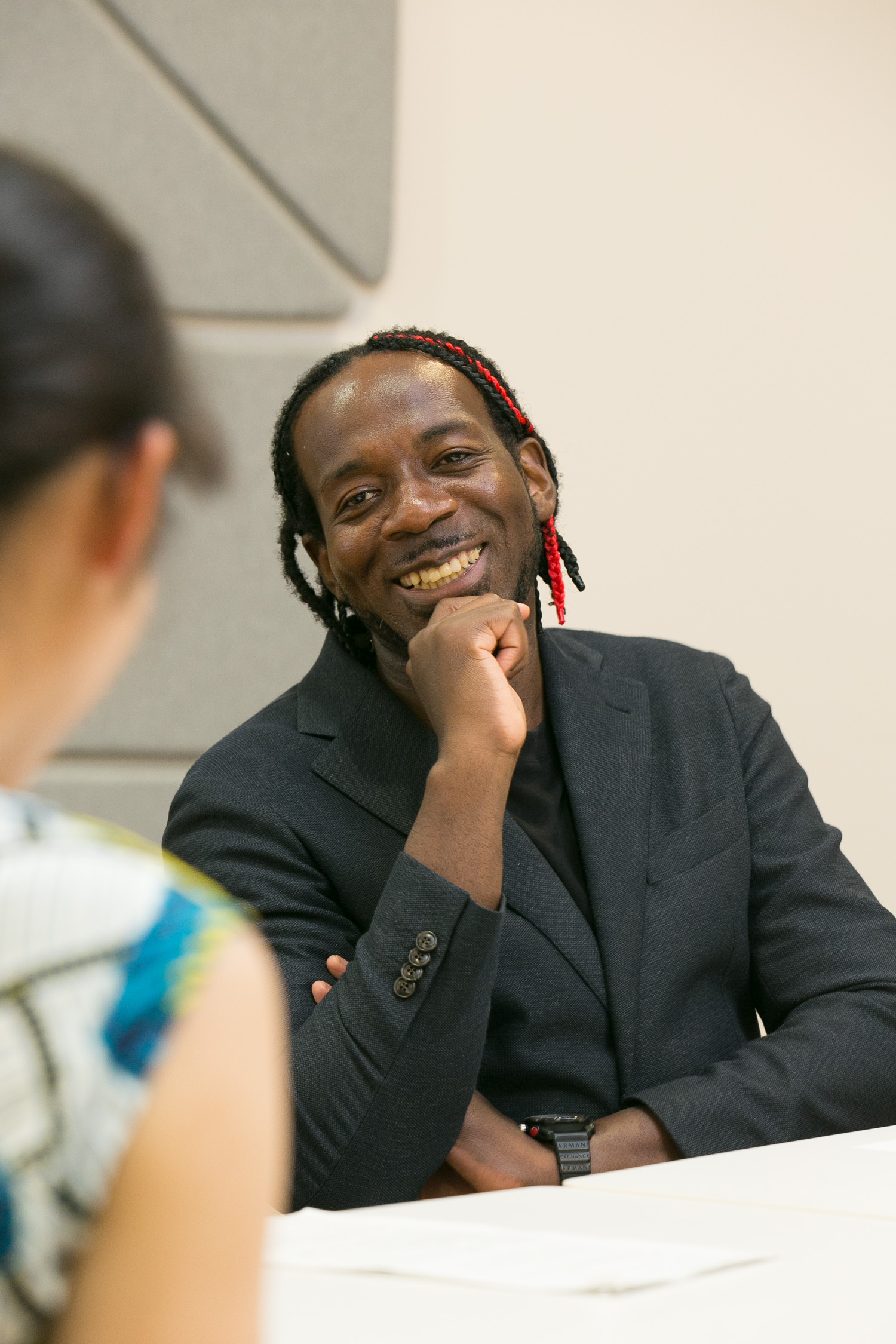
"In Cameroon, people call each other 'Papa' or 'Mama,' even if they are strangers. By addressing someone this way upon first meeting, you can naturally become close to them," says Hoshino.
Niki: Speaking of energy, one of JICA's key themes for TICAD 9 is "Energizing both Africa and Japan."
Hoshino: "TICAD 9" is an international conference expected to play a significant role as a bridge between Japan and Africa. I've been invited to various events as well. The theme of energizing both Africa and Japan is a very fitting key phrase.
Kushida: One focus of TICAD 9 for energizing both Japan and Africa is on "youth." It is said that more young people in Japan are becoming inward-looking and less inclined to travel abroad. On the other hand, Africa has a large and vibrant youth population. With an average age of 19.2 years (as estimated in 2024), Africa holds great potential. We hope that by connecting young people from both regions, they will create valuable learning experiences for each other.
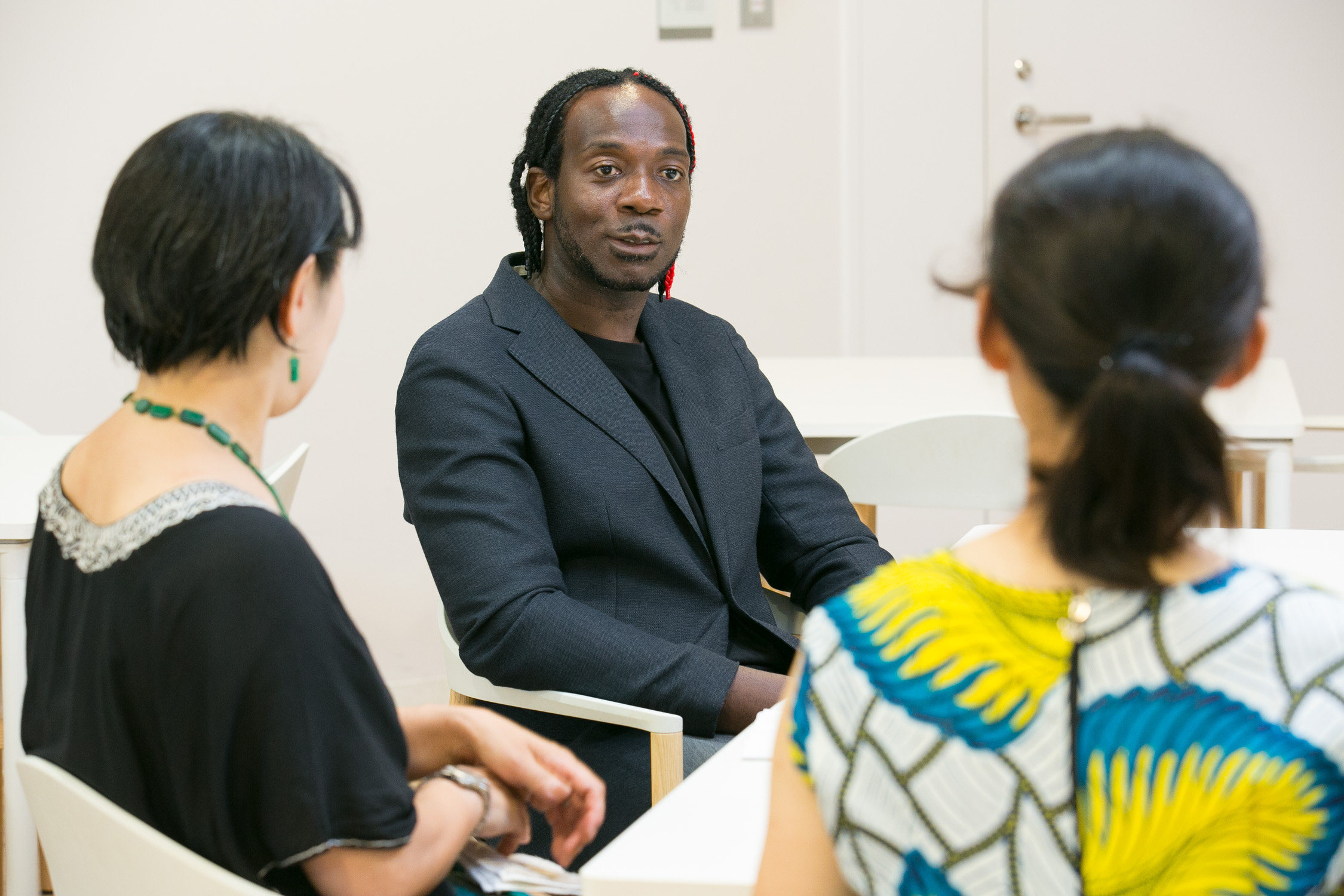
Hoshino Rene, center, talks about Africa.
Hoshino: Are there any specific initiatives to foster deeper exchanges between young people in Japan and Africa?
Kushida: As part of TICAD 9's related events, JICA is organizing the "Japan-Africa Youth Camp," an initiative aimed at cultivating individuals who can become bridges between Africa and Japan. This event brings together young people from Africa living in Japan to engage with local high school and university students through discussions and games, providing opportunities to deepen their exchanges.
Hoshino: That's wonderful. My mother, who grew up in Cameroon, always shares a proverb: The most important thing in life is to "be energetic." Energetic people continuously expand their world, build relationships, learn their trade, and become independent. People in Africa receive a lot of energy from their parents, so they're very lively (laughs). When the knowledge and education of Japanese youth combine with the energy and vitality of African youth, it creates an exchange where they can mutually inspire each other.
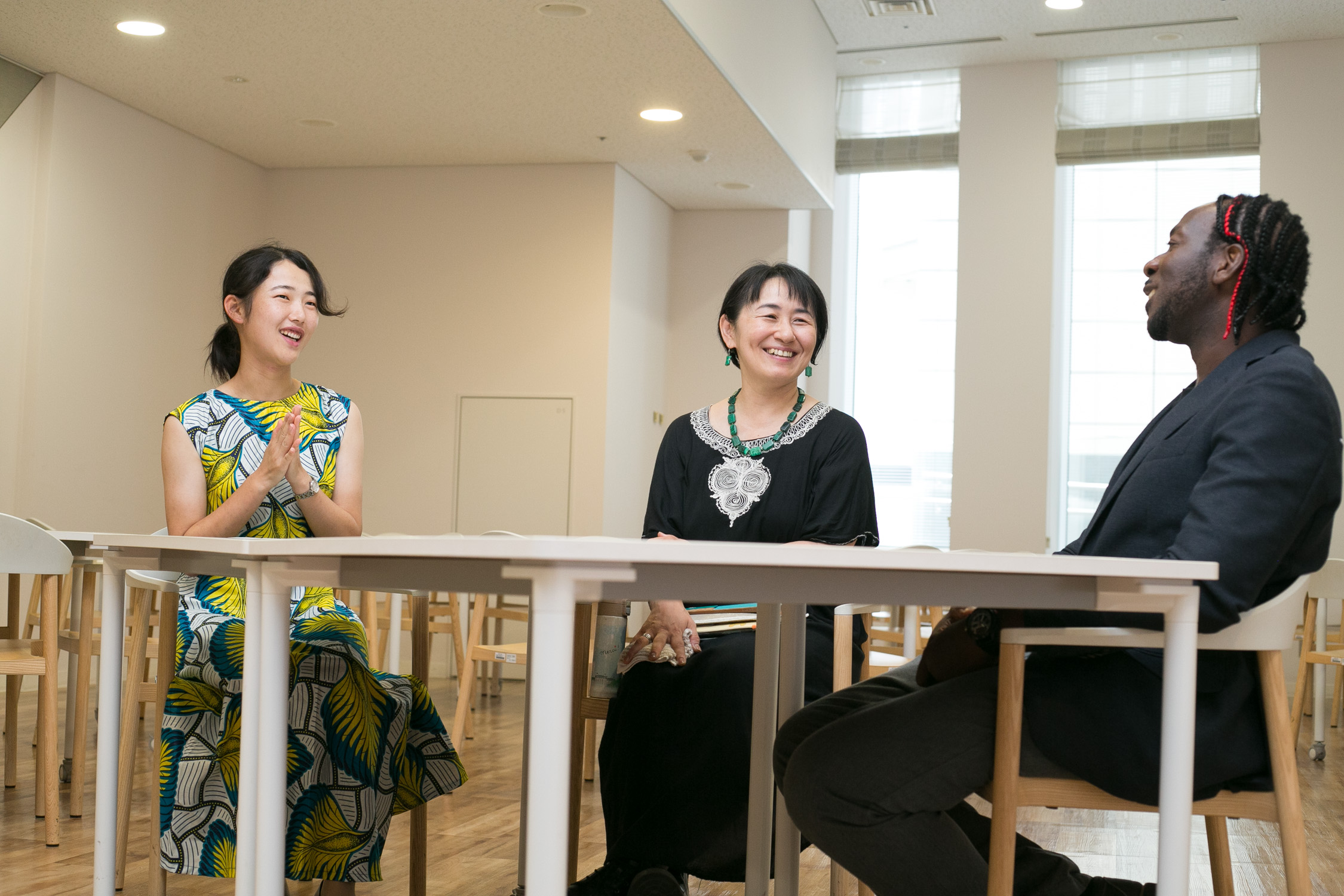
From left, Niki Hozumi,Kushida Mami and Hoshino Rene
Kushida: Exactly. Another initiative to boost vitality is the "Hometown Initiative." In Japan, there are villages and towns experiencing depopulation and declining numbers of young residents. The idea is to designate local governments with strong ties to Africa as "JICA Africa Hometowns" and work together on projects that invigorate both sides.
Niki: Compared to urban areas, rural regions tend to have fewer opportunities for interaction with people from overseas. However, having the chance to engage with people from Africa, even while living in rural areas, is a great benefit.
Kushida: Doesn't it excite you just to imagine young people from Japan and Africa connecting and inspiring each other? Through TICAD 9, I hope Japanese youth will learn about what Africa is like, discover its unique attractions, and feel a closer connection to the continent.
Hoshino: That sounds great. For young people who develop an interest in Africa through TICAD, I definitely recommend trying rice with condensed milk while they're there!
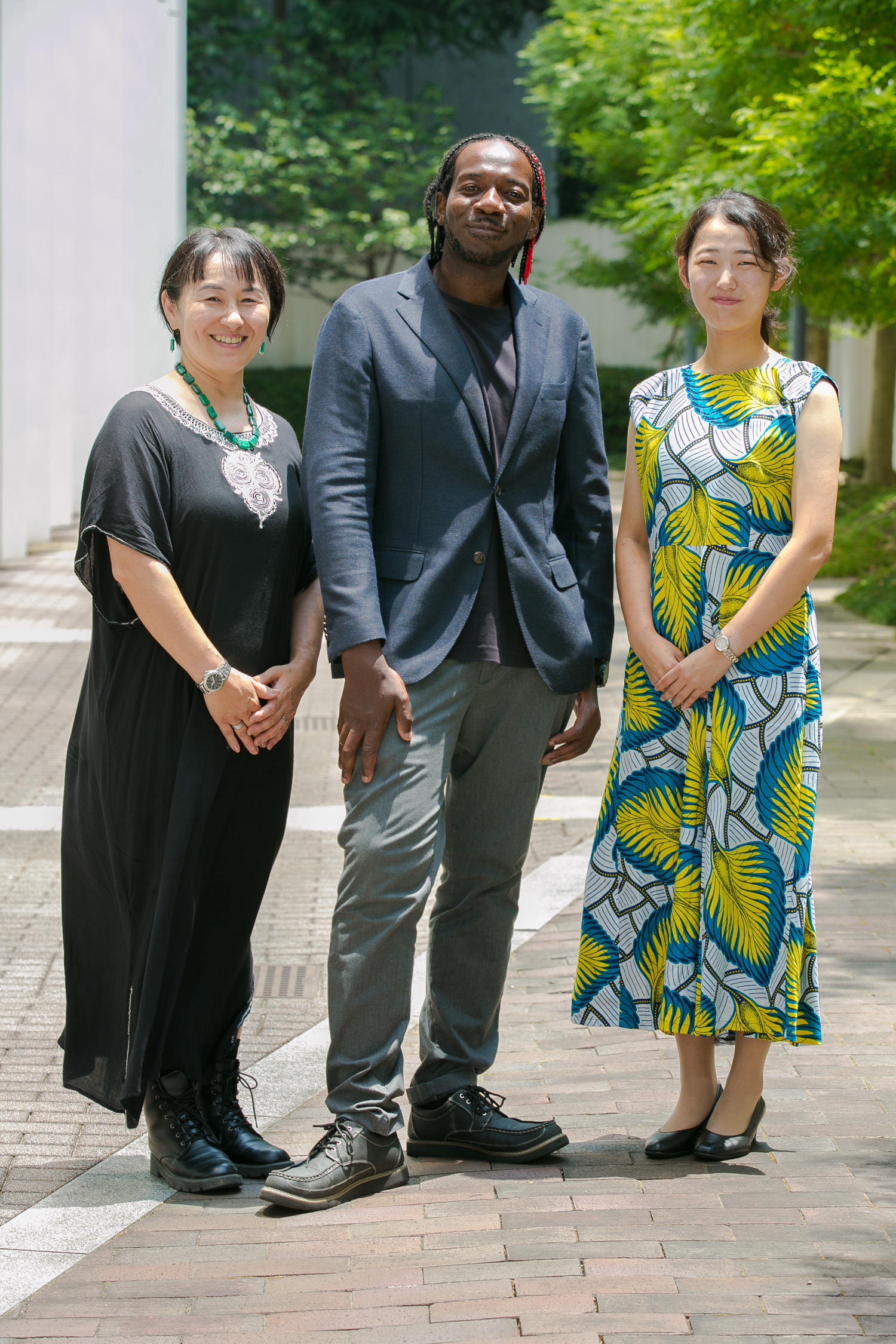
From left,Kushida Mami, Hoshino Rene and Niki Hozumi
scroll